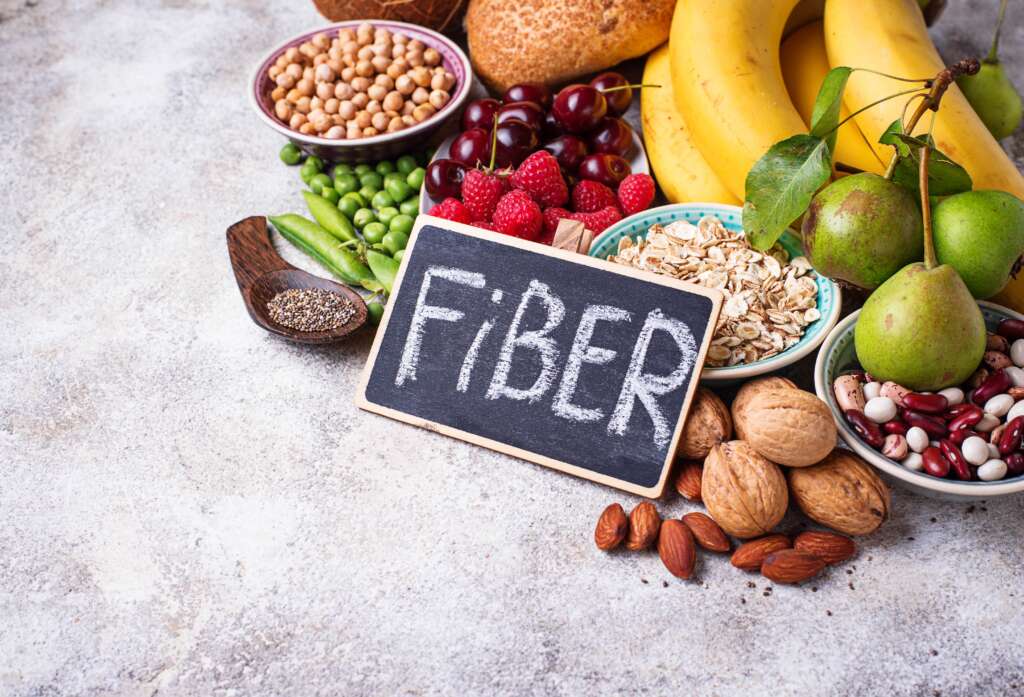Best Sources Of Fibre For Healthy Pregnancy


Pregnancy is a time of immense joy and anticipation, but it comes with a heightened awareness of nutrition and overall well-being. One crucial aspect of a healthy pregnancy is ensuring an adequate fibre intake, as it plays a significant role in supporting digestive health. It also helps manage common pregnancy discomforts. In this article, we will explore the best sources of fibre for pregnancy and their benefits.
Expectant mothers need dietary fiber for a healthy pregnancy built on sound nutrition. Fibre found abundantly in various plant-based foods offers various benefits supporting maternal well-being and fetal development. It helps in digestion, regulate blood sugar levels, and can reduce common pregnancy discomforts like constipation. Additionally, a fibre-rich diet can contribute to healthier weight gain during pregnancy and reduce the risk of gestational complications. In this guide, we will explore the best sources of dietary fibre for a healthy pregnancy. We will offer insights into its advantages, recommended daily intake, and nutritional choices. These will help soon-to-be mothers maintain optimal health throughout their pregnancy journey.
1. Understanding the Importance of Fiber During Pregnancy
a. Fiber and Digestive Health
During pregnancy, hormonal changes can lead to constipation and other digestive issues. Fibre, a non-digestible carbohydrate in plant-based foods, is a natural remedy for these concerns. It promotes regular bowel movements, reducing the discomfort associated with constipation.
b. Blood Sugar Regulation
Fibre-rich foods help in stabilizing blood sugar levels, a crucial factor for pregnant women, especially those at risk of gestational diabetes. By slowing down the absorption of sugar, fibre prevents rapid spikes and crashes in blood glucose levels, contributing to overall maternal well-being.
2. Whole Grains: Nature’s Bounty of Fiber
a. Quinoa: A Complete Protein and Fiber Source
Quinoa, a versatile grain, stands out as an excellent source of both protein and fibre. Its high fiber content contributes to digestive regularity. Additionally, the presence of essential amino acids makes it a valuable addition to a pregnant woman’s diet. Whether enjoyed in salads, stir-fries, or as a side dish, quinoa provides a nutrient-packed punch.
b. Brown Rice: A Wholesome Pregnancy Staple
Brown rice, a whole grain, is a nutritional powerhouse for expectant mothers. It contains fibre and essential nutrients like iron and B vitamins. Choosing brown rice over its refined counterpart ensures a steady release of energy, making it ideal for maintaining stable blood sugar levels during pregnancy.
3. Fruits: Nature’s Sweet Fiber Treats
a. Apples: A Fiber-Rich Snack for Pregnancy
An apple a day keeps the doctor away and contributes to a healthy pregnancy. Packed with soluble and insoluble fibre, apples aid digestion and promote a feeling of fullness. Munching on apples can be a convenient and nutritious snack for pregnant women, helping to manage weight gain during this crucial time.
b. Berries: Bursting with Fiber and Antioxidants
Berries, such as strawberries, blueberries, and raspberries, are delicious and rich in fibre and antioxidants. The fibre content supports digestive health, while antioxidants help combat oxidative stress, promoting overall well-being for the mother and the developing baby.
4. Legumes: Protein and Fiber Powerhouses
a. Lentils: Fiber and Folate for Fetal Development
Lentils are excellent for pregnant women seeking a fibre boost and essential nutrients like folate. Folate is crucial for fetal development, reducing the risk of neural tube defects. Including lentils in soups, stews, or salads can be a tasty and nutritious way to enhance fibre intake during pregnancy.
b. Chickpeas: Versatile and Fiber-Rich Pregnancy Superfood
You can include chickpeas, or garbanzo beans, a versatile legume, in various dishes. Packed with fibre, protein, and iron, chickpeas contribute to digestive health and support the increased iron needs during pregnancy. Hummus, a popular chickpea-based dip, is a delicious and fibre-packed snack.
5. Vegetables: Fiber-Filled Greens for Pregnancy
a. Broccoli: Nutrient-Rich and Fiber-Packed
Broccoli is a cruciferous vegetable that provides a double benefit during pregnancy. It is rich in essential nutrients like vitamin C, folate, and calcium and boasts a high fibre content. Including broccoli in meals helps meet nutritional needs while promoting digestive well-being.
b. Spinach: Iron-Rich and Fiber-Friendly Leafy Green
During pregnancy, leafy green spinach addresses increased iron requirements due to its renowned iron content. Additionally, it is a good source of fibre, supporting digestive health. Whether included in salads, smoothies, or cooked dishes, spinach is a versatile and nutritious addition to a pregnant woman’s diet.
In conclusion, maintaining a fibre-rich diet is crucial for a healthy and comfortable pregnancy. By including these best sources of fibre into daily meals, expectant mothers can support their digestive health. It will also regulate blood sugar levels, and ensure optimal nutrient intake for themselves and their growing babies. From whole grains and fruits to legumes and vegetables, the variety of fibre-rich foods available provides various delicious and nutritious options for a well-balanced pregnancy diet. Embracing these choices not only builds maternal well-being but also lays the foundation for the healthy development of the unborn child. So, make the most of nature’s fibre treasures to embark on a vibrant and healthy pregnancy journey.



